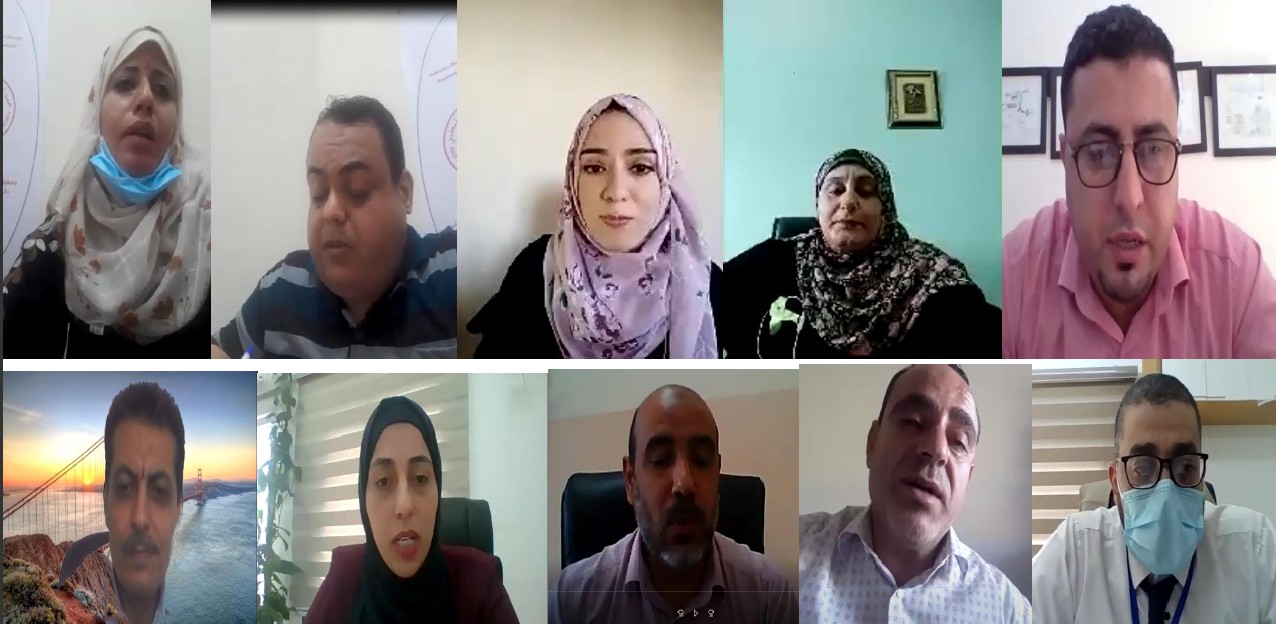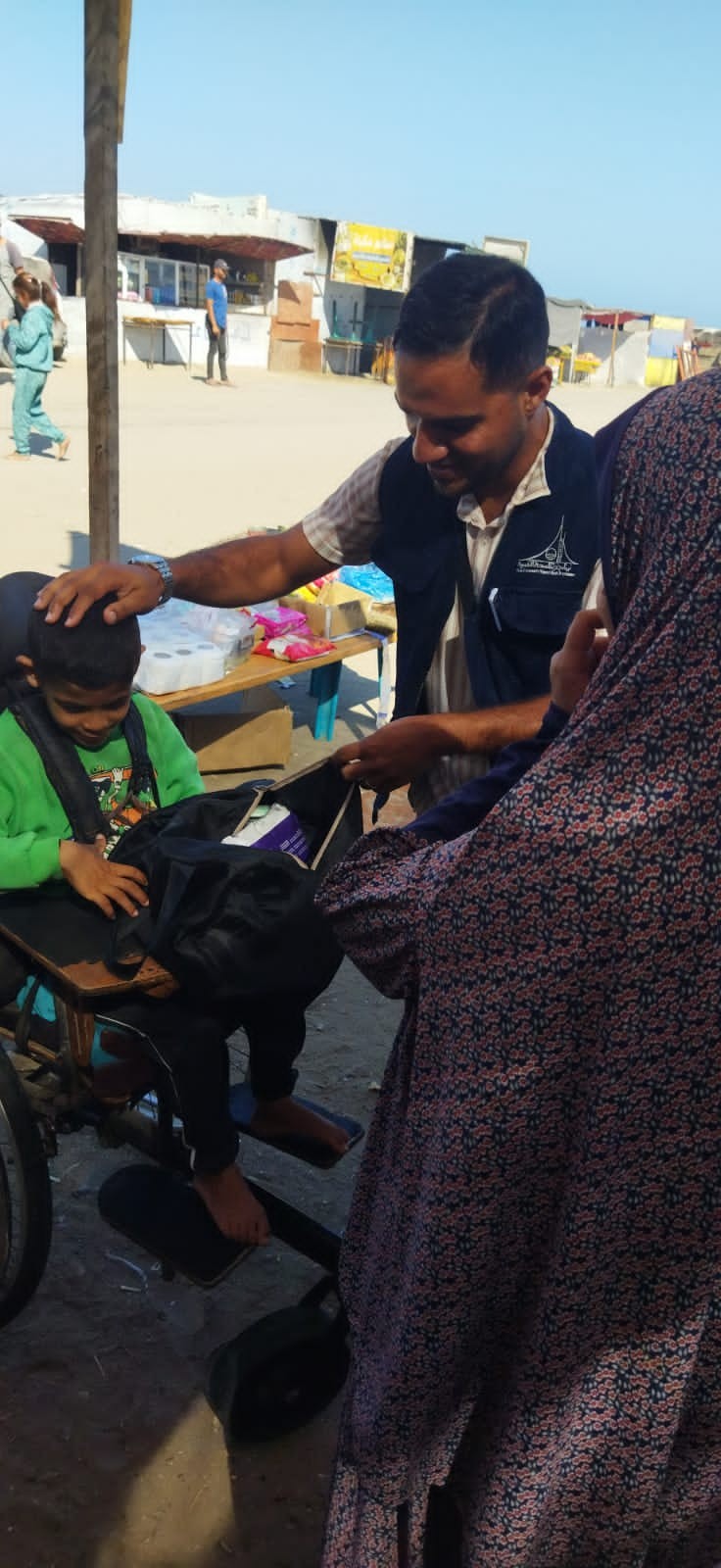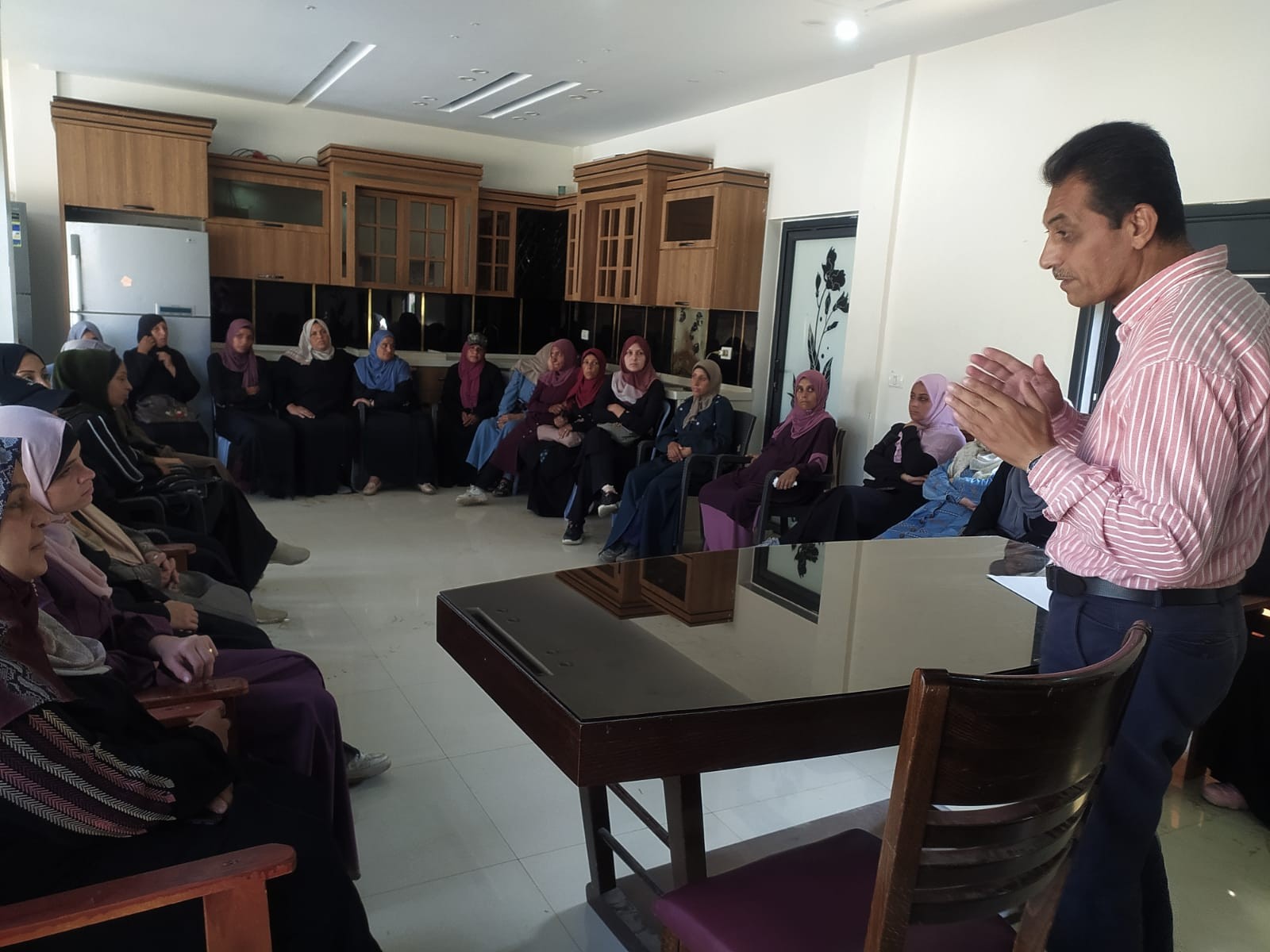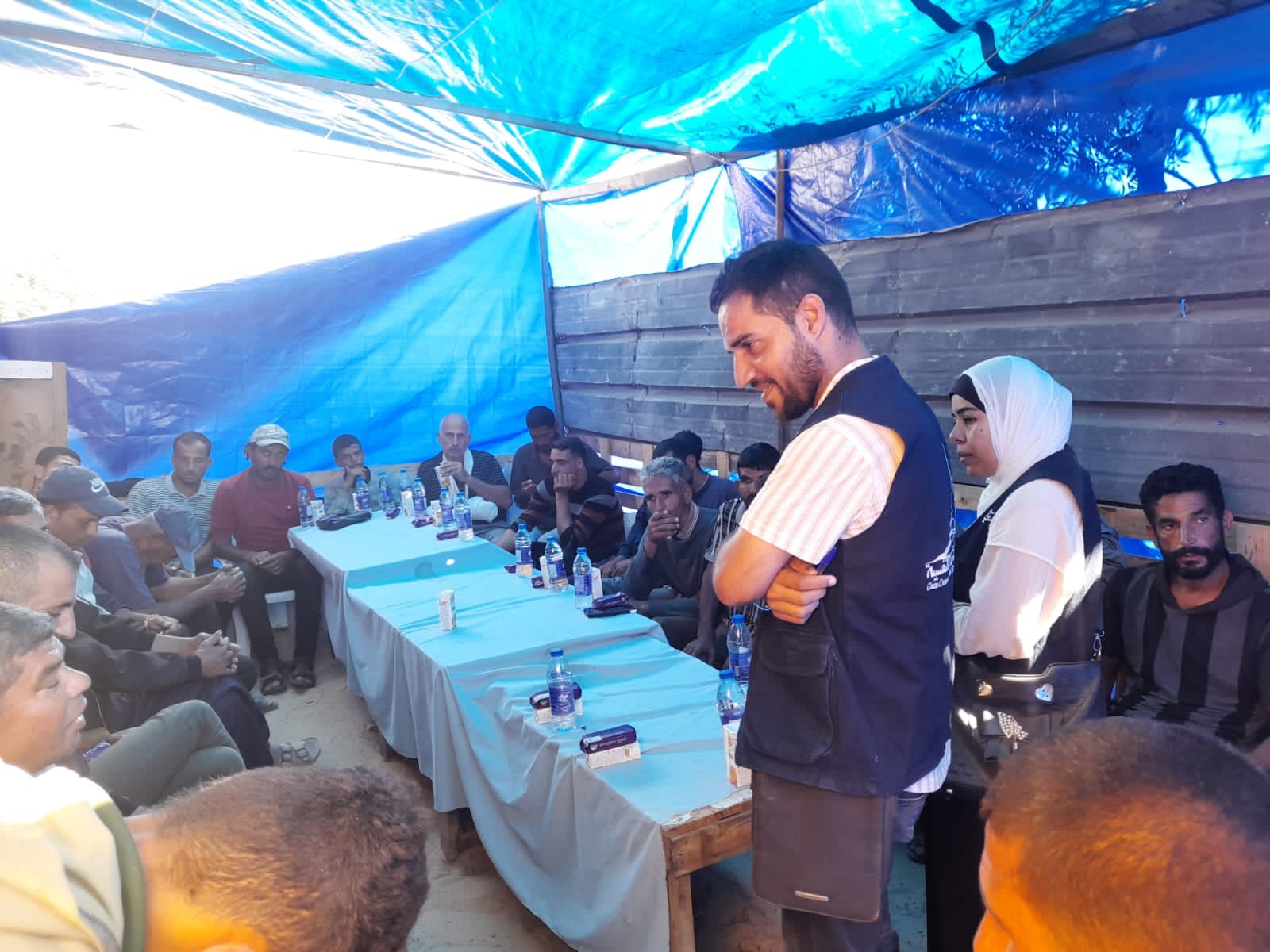
“Workshop: Mental Health for all – Greater Investment, Greater Access”
As part of its efforts to champion mental health and human rights issues, Gaza Community Mental Health Programme has arranged a workshop on the occasion of World Mental Health Day under the title: “Mental Health for all – Greater Investment, Greater Access”.
The workshop was attended by Dr Mohammad Abu Shahla, Head of the Board of Directors; Dr Yehia Khader, Director of MoH’s Department of Mental Health; Nevien Abdelhadi and Mostafa Al-Zaeem, mental health specialists from the Palestinian Red Crescent Society; Dr Mahmoud Al-Sheikh Ali from the European Hospital; and Osama Freineh and Kholoud Abu Hejayer, GCMHP MH specialist, in addition to a host of representatives from CBOs.
The first session, titled ‘Covid-19 Impact on Health Care and Social Service Providers’, was moderated by Ms Inas Joudah, Head of Training and Capacity Building Unit, during this session Dr Khader explained how professionals working on the front lines have been affected by the stressful situation of the pandemic and the efforts made by the MoH to provide Mental health support.
Mr Freineh, on his part, made a presentation about how the general life in the Gaza Strip has been affected upon the announcement of the pandemic outbreak inside the society. He also explained GCMHP’s interventions to respond to the situation which has had a heavier impact on mental health patients as well as the professionals and caregivers working in the field of psychosocial support.
During the first session too, Mr Al-Zaeem and Ms Nevien talked about PRCS MH department experience in the shadow of the pandemic, the achievements made and the challenges faced by the Psychological First Aid team.
The second session, entitled ‘Efforts made to Support Different Social Groups Including Students, Labourers, the Quarantined and Covid-19 patients’, was then introduced by its moderator, Dr Darabei.
In this connection, Dr Al-Sheikh Ali explained the mechanisms of MH providers’ work inside hospitals and talked about the impact of their efforts on maintaining the psychological wellbeing of the quarantined and coronavirus patients.
On the other hand, Dr Mona Kaskeen, head of MH unit at Al-Shefa Hospital, shared their experience in providing distant mental health services during the emergency situation of Covid-19.
Sharing her experience in PFA provision during the pandemic situation, Ms Abu Hejayer made a presentation about the groups her team intervene with, explaining the main psychological complaints they receive and mechanism of their work as well as the most important needs of their clients.
The participating organizations shared the different challenges that they have been contending with recently. The following is the highlights of these challenges:
· The impact of the lockdown on MH services that have been restricted to the quarantined;
· Cutting down a variety of activities due to logistic challenges ensued by the emergency situation;
· Lack of health personnel;
· The difficulty to reach the quarantined as a result of the unavailability of wi-fi connection in quarantine centres.
· The risk of infection that health care volunteers face;
· Stigmatization faced by the quarantined, the infected and the health care providers as well as their families
· The difficulty to diagnose cases and coordinate with organizations to link and refer the affected;
The workshop resulted in a set of recommendations, among the highlights of which are:
· Reinforcing the skills of self-care for frontliners to improve the quality of the services they provide;
· Creating a uniform intervention program especially during the pandemic situation;
· Providing the fund needed to implement MHPSS activities and meet the logistic requirements of frontliners;
· The necessity to recruit mental health professionals to directly deal with the infected inside hospitals;
· The necessity to train the police and health personnel about how to intervene during pandemics;
· The necessity to put a studied plan to promote knowledge of the personnel working distantly;
· Raising the social awareness about the stigmatization related to the pestilence;
· Improving the protection ways to alleviate anxiety of the elderly and children.




Read Comments
Steven Rich
March 10, 2019Omnis iste natus error sit voluptatem accusantium nam libero tempore, cum soluta nobis est eligendi optiocumque nihil impedit quo minus id quod maxime.
Van Wimbilton
March 10, 2019Natus error sit voluptatem accusantium nam libero tempore, cum soluta nobis eligendi optio cumque nihil impedit quo minus id quod maxime.